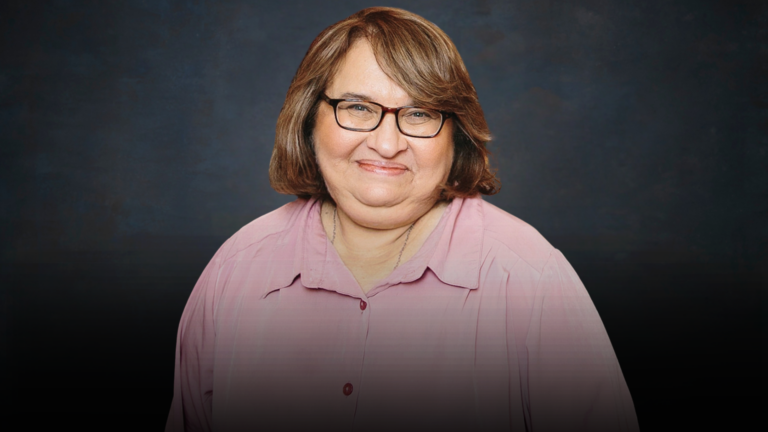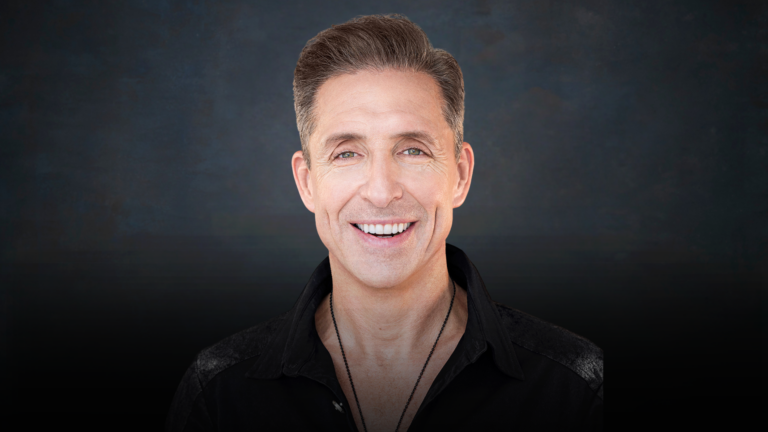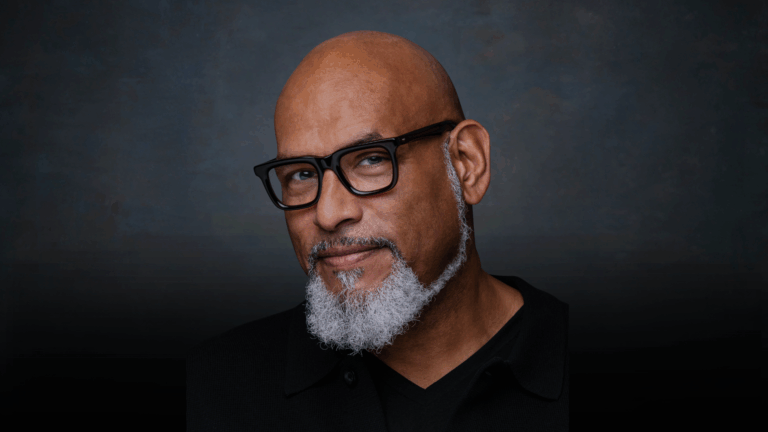This week’s conversation is with Eric Barker, a former Hollywood screen-writer turned author whose dedicated following of over half a million readers look to Eric for his (often counter-intuitive) insights and research-backed advice on how to be great at life.
In 2017, Eric published his first Wall Street Journal bestseller Barking Up the Wrong Tree, which reveals the extraordinary science behind what actually determines success and most importantly, how anyone can achieve it.
However, over the last several years Eric pivoted to taking a deep dive into the science of relationships, and recently published his newest bestseller, Plays Well with Others: The Surprising Science Behind Why Everything You Know About Relationships Is (Mostly) Wrong.
And that’s why I was so excited to sit down with Eric – if you’ve been following this podcast, you know I’m a big believer that relationships are foundational to exploring potential and achieving our very best… no one does it alone… through relationships, we become.
So, it was a joy to speak with Eric about all things relationships – what we’re getting wrong, the antidote to loneliness, how to cultivate deep friendships, love, communities, and so much more. I hope you leave this conversation with a new perspective on what a healthy relationship feels like, and maybe even inspired to re-examine how you approach them.
“Marriage doesn’t make you happy. A good marriage makes you happy. Marriage does not make you healthy. A good marriage makes you healthy.”
In This Episode:
The loneliness epidemic
We’ve been hearing a lot lately about loneliness. And even before the pandemic, loneliness was just exploding. And looking at the research, I found two insights that really blew me away. First of all, before the 19th century, loneliness basically didn’t exist. That’s an exaggeration, but not by much. Fay Alberti is a researcher at the University of York and she found that you look for the word lonely and it meant things that were by themselves, but it didn’t have the negative stigma. And the reason loneliness didn’t exist was basically we were all enmeshed in nations, religions, tribes, groups, families. So there wasn’t that perception of isolation. Historically human beings couldn’t make it on their own so we didn’t.
We’ve been misdiagnosing loneliness
Lonely people don’t spend any less time with others than non-lonely people do, which sounds ridiculous, but the truth is, we’ve all felt lonely in a crowd. You can be in Times Square New Year’s Eve surrounded by people and feel lonely. And what Cacioppo realized was that loneliness isn’t about proximity to others. It’s about how you feel about your relationships. We can experience solitude, which is a good thing. That’s when you feel like you have strong connections to other people, but right now you’re by yourself. That’s fine. But you can also be surrounded by people and not feel connected to them and feel terribly lonely. So we’re trying to solve the loneliness conundrum and a big part of it is we don’t really understand, we haven’t really understood where loneliness comes from and we’ve definitely misdiagnosed it.
Misunderstanding friendship(s)
As I talk about the book, it’s like we don’t get a lot of good advice on friendships. Friendship is kind of the neglected stepchild of relationships. We kind of take it for granted. You might pay for a therapist to improve your marriage or a therapist to help your children. When friendships go south, we kind of just let them go and we can deepen our friendships by the two things I found in the research was time and vulnerability. Those are the costly signals that we can send to others that we value them and those are the things that actually open up, deepen and really strengthen relationships because both of those are, they’re scary. It’s hard to dedicate more time to people and opening up, talking about the things that scare you, talking about who you really are underneath, scary but that’s how we create emotional intimacy with people.
Being part of a group
The research consistently shows the more groups we’re a part of, the better we do. It’s because, much like with individual friends, you draw different things from each relationship and you provide different things in different relationships. There’s times where you have a mentor and there’s times where you are the mentor. We play different roles. So the more groups we join, that’s fantastic. I think probably to your point, I would recommend that first, I think. But I think a lot of people struggle there because it’s like, where do I find the group? How do I join the group? Will I be rejected? So emotionally, I think it’s much to start with the friends you already have. This is so simple. Let me take these friends and let me try and draw them together. Maybe everybody doesn’t click, but some of them will. If people can join groups that are already in existence, that’s fantastic because that’s going to expand the network and you’re going to get more friends from that. It’s also valuable to create because then you’re the hub as opposed to the node in the network.
Defining a good friendship
When I think about good, I inevitably think about deep. I think the vast majority of the research shows that quality beats quantity when it comes to friendship, and I think that ties into catching up with loneliness research where it’s like having a really wide network that’s only an inch deep. That’s really not going to help as much with the loneliness issue. So to me, good is deep, intimate, and I would say the barometer there is how much can you share? How many embarrassing things can you say and this person still accepts you, and frankly, more than accepts you, the scarier things you’re willing to admit to and they move closer. That’s something that you’re struggling with? Let me help you, not let me banish you to the edge of the empire.
The Scary Rule
With vulnerability, in the book I call it the scary rule. If it’s scary, say it. Now you don’t have to go confessing to any murders immediately, but to incrementally push that, this comes from some phenomenal work by Arthur Aron where he was able to make strangers feel like lifelong friends in under an hour just by having them progressively answer deeper and more intimate questions so that people could get to know, and not on the surface but more serious thing. They could get to know each other. The two research assistants that he did this work with ended up getting married. It’s like that really opening up.
Vulnerability in leadership/parenting situations
It’s really tricky. The thing we can do is still open up, and be vulnerable, but it doesn’t have to be in things that are directly related to the goals at hand. If a leader is to acknowledge, oh geez, I don’t know what the heck I’m doing, that could be a really dangerous thing to say in a goal-oriented context. But for a leader to say, hey, I’ve struggled with my relationship with my kids. That doesn’t threaten their authority in terms of that. Or hey, I’ve had difficulty in a lot of arenas that don’t directly impact the goals of the organization, that is still something that’s vulnerable. They’re opening up to you, they’re being honest, they’re talking about their feelings, but it’s not going to make you think less of them as a leader or a senior official.
Marriage doesn’t make you happy
Marriage doesn’t make you happy. Good marriages make you happy. Marriage does not make you healthy. A good marriage makes you healthy. When you look at all the stats, 40% divorce rate, roughly 7% of couples separate but don’t get divorced, and then you have couples who stay in a marriage but are unhappy. That’s less than 50%. Less than 50% of people have happy marriages. Nobody likes to hear that and the truth is that marriage used to be a lot more stable historically. We also used to have arranged marriages and we had stifling levels of community and peer pressure. Now we have more freedom. The bad news is, like I said, if we’re walking into the marriage casino, the odds are against you. But the difference here is that now we do have far more freedom. Marriage is self-defined in a lot of ways. So if you do the work, if you really try, put the effort in or are proactive, then you can have a happy marriage. And actually, better than that, Eli Finkel’s research at Northwestern, the happiest marriages today are the happiest marriages that ever existed.
The happiest marriages of all-time
Before marriage was very scripted and very defined, and that meant that you had a lot of square pegs, round holes. It was uncomfortable, but there was so much social pressure that it kept marriages together and stable even if they weren’t happy. Now you have a lot of options, so many possibilities. Divorce is far easier. But you also have that freedom to define for yourself with your partner, what does marriage mean? And with that, there’s nobody telling you what to do. It’s a do-it-yourself kit. There’s no instruction manual, but if you create your own instruction manual, you can create this perfect, customized, tailored, wonderful, fulfilling marriage where you honor both of your ideas about what a good relationship is. But if you’re not doing that work, unlike the past, society is not going to structure it for you.
Go beneath the surface
John Gottman is the leading researcher on marriage. One thing he talks about is he calls it love maps and it’s basically getting to know your partner, which on the surface seems like, oh yeah, I know things about my… No, no, no, no. What he means with getting to know your partner is exactly what you are talking about. Not knowing how they like their coffee or what kind of movies they like. Asking the hard questions, like you’re saying, what is a good relationship to you? What is happiness to you? What is a good husband to you? There are not quick, easy answers to those questions, and we don’t usually ask them. And there’s no way to know your partner’s idiosyncratic feelings about that unless you ask. They’re hard questions. Most people never do. But doing that is like getting the answers to the test.
The correlation between happiness and love
Usually one of the other sad facts is that two years after people are married, their happiness level is pretty much where it was before they got married. There’s usually a dying down and entropy and it doesn’t have to be that way. The thing is people often feel like, oh well, when we first fell in love, we were in love and that’s why we did all these exciting fun things together. Actually, that goes in both directions. When you do fun things together, that is what makes you fall in love. And most couples fall into a routine, hey, Netflix and pizza, and the truth is that you can sustain those early love feelings by doing exciting, fun stuff together, by not falling into habits because of psychological principle of emotional contagion. The feelings we have, we associate with those around us.
Reigniting love
The great thing about the reigniting love, doing exciting stuff together is it’s perfectly fun to schedule it. Spontaneity is great, but it’s like you can say, hey, we need one really exciting, fun thing on the calendar at least once a month. You can plan that. You take a trip, you do something for the day. That can almost run on autopilot if you do some planning. Asking the deep questions, that’s something that you want to take some time with, but you want a booster shot every now and then and just make sure we’re still on the same page.
Communication
It’s a cliche that you need to communicate, but we really, really do, and the ugly conversations need to happen. The thing is people think, oh, I don’t want to have that conversation because it might turn into a fight. But the truth is shouting and yelling only end marriages 40% of the time. The majority of the time that marriages end, it’s because… You only shout and yell when you care. When you stop caring, you don’t shout and yell anymore. Most marriages end because people write the other person off and start living parallel lives. So if that person says, hey, I’ve been telling you this for how long? Either you haven’t been listening, or maybe they think they’ve been saying it, but they’ve been saying it indirectly. This is a communication issue where it’s just like, are we being clear and are we paying attention and really saying those things and hearing them. And again, that’s where the love maps issue comes in, where it’s like, okay, hey, maybe I haven’t been listening, I apologize for that. Right now, we should do that exciting thing, and what else? What else have I been neglecting? I apologize. Apologies are great. They’re powerful because nobody ever does them.
Be the fun couple, together
Going to the gym when you haven’t exercised in five years is not fun. But you need to say, I’m going to show up and I’m going to do it. And then it shifts to an identity level where I’m the kind of person who takes care of myself. I’m the kind of person who pushes myself. And now you’re on vacation and you’re going, hey, wow, those big hills over there, I could run them tomorrow morning. Now you’re the kind of person who seeks that and finds that, but it’s like you need to bootstrap that perspective. You have that perspective of how can I turn every aspect of my life into something that’s engaging and entertaining? I think other people need to start to build that to where all of a sudden they realize so much of this is not really about a single activity, it’s all about my perspective.
When relationships end
It’s really hard… Aristotle defined a friend as another self, which sounds really poetic and it actually turned out to be true, is the closer we get to someone, the more in our heads our identity and their identity overlap. When you ask people about their close friends, who has this trait, do you or them? It actually takes people longer to answer the question for their close friends because they have to disentangle themselves from the people they’re close to. When relationships end, people are more likely to say I don’t know who I am anymore, because you have lost a part of yourself and there’s a transition. And that’s tough, where we move out of the Venn diagram. It’s a difficult time, and that’s where a lot of people talk about getting to know yourself again, getting to understand yourself again, and James Pennebaker’s work in terms of writing, writing it, cause and effect, your feelings, writing it down helps us to process, helps us to move on, to retell the new story of who we are now that that person’s not in our life anymore. So there’s a way, again, to bootstrap that process of moving on and finding yourself again after the end of a relationship.
Trust more
There’s been longitudinal studies and people who trust more do better. I think out of a one to 10, with one being the lowest levels of trust and 10 being the highest levels of trust, I think the people who did the best in life scored a seven or an eight because the opportunities we miss by not trusting generally end up being a lot bigger than, oh, great, I dodged that lying scammer. It’s like, yeah, but you also missed so many opportunities. I think it was the financial equivalent of not going to college by being low on the trust spectrum.



